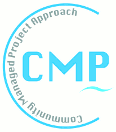The research theses on the Community Managed Project (CMP)
After the results of the three M.Sc. theses and the one B.Sc. thesis were presented in a research workshop in Addis Ababa in last October, all the theses have now been finalized and published for wider audience. According to the research results, the CMP approach seems to be as efficient as the project reports from Amhara and Benishangul-Gumuz have shown. However, all the researchers are proposing several improvements to be taken into account in the future development of the CMP approach.
Some of the main conclusions from the final theses can be summarized as below:
- The findings show that due to increased community participation in the planning phase, and due to community empowerment in the implementation phase, water supply schemes under the CMP modality tend to achieve higher reliability and functionality, better management performance, and optimum utilization, as compared to water supply schemes implemented under WMP modality.
- The functionality rates of the water schemes in the studied woredas were 98.6 %. This reflects that the efficiency of CMP approach has spread deep root in the rural communities and communities are willing to pay and have sense of ownership for the water supply service.
The strengths of the CMP approach as presented in the researches are summarized in the following:
- There is a progressive approach towards capacity building at the regional, woreda, and community level
- The cash flow mechanism adopted is very efficient and ensures the timely delivery of resources
- Strong empowerment of community members in terms of organization, management, control and supervision
- Effective construction supervision and control by the beneficiary communities
- Increased sense of ownership among the beneficiary groups
- High functionality rates of constructed schemes (higher than in the Woreda Managed Project approach)
- The procurement procedures are fast and efficient. Moreover, direct community level procurement reduces project costs
- High budget utilization
- Increased community commitment for covering operation and management and cost recovery
Weaknesses of the CMP approach as presented in the researches are summarized in the following:
- The working procedures involve administration of a number of application and recording forms, which are difficult to be computed by the local communities
- There is too much paper work at the woreda office
- In some cases, material suppliers take advantage of the local communities in matters associated with price and quality of materials
- Promising but unsatisfactory arrangements for O&M
- There is no emphasis given on water quality and the monitoring of water quality is inadequate.
- There are no local spare parts suppliers and construction materials (cement, reinforcement bars) in remote communities
- Though funds are available in microfinance for operation and maintenance, the amount would not cover the cost if there was major breakdown of water points
- Even though the cost recovery system seems to be meeting program objectives (i.e. communities make financial contributions for O&M at the savings account in the microfinance institution), it is not moving towards a financially sustainable future which would allow the beneficiaries:
- To conduct a major maintenance in case of sudden breakdown,
- To replace the system when it reaches the end of its economic life, and/or
- To expand the system so as to accommodate additional users with increase in population and demand.
Some of the recommendations given by the researchers in order to improve the CMP approach are mentioned below:
- Under CMP the trainings should consider the concept of asset management rather than scheme management. Woredas should integrate asset valuation and costing in their training curriculums so as to capacitate WASHCOs in estimating the minimum monthly contributions required for O&M.
- Community management is a new concept with a progressive trend. Successful management practices are observed among some WASHCOs in the CMP Woredas. These practices would best disseminate among other WASHCOs if a continuous experience sharing forum is established.
- Caretakers need intensive and recurrent refresher trainings
- Catchment protection works should be promoted together with woreda agricultural desk and follow up is required on its implementation. Coordinated efforts with woreda agricultural desk is essential prevent degradation of natural resources.
The theses of the ReCMP research project students are available below.
Evaluation of CMP Research Project 2012 – 2014 - Findings and Recommendations

